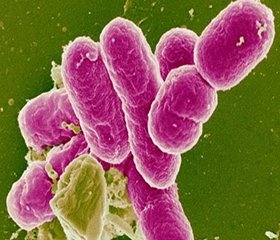Журнал «Здоровье ребенка» (62) 2015. Тематический выпуск "Детская гастроэнтерология"
Вернуться к номеру
Clinical significance of prostaglandins in form of courses of bacterial intestinal infections in children
Авторы: T.S. Zharkova — Kharkiv National Medical University. Kharkiv
Рубрики: Педиатрия/Неонатология
Разделы: Клинические исследования
Версия для печати
Acute intestinal infections (ІI) are one of the most frequent infectious diseases for the children of early age.
Certainly, that clinical sings of any disease, including IІ, is determined by the reaction of mediators of inflammation, particular – interleukins and prostaglandins (PG). The PG are able to disturbs the dynamic balance of antioxidant activity of lipids and antioxidant system of macroorganism, change a peristalsis to the intestinal, vascular tone. These disturbances provide to the intracellular invasion of bacteria, depress the function of lymphocytes, which influences on development of pathological process in bowels and manifestation of clinical symptoms of illness. The overconcentrations of PG are factor of forming of hyperthermia, anorexia, microcirculatory disorders and activate of adenylatecyclas in the tissues of gastrointestinal tract. That has important value to development of secretory diarrhea in patients with acute intestinal infections.
However there are only single scientific works to the study of PG in forming of clinical variant of II in children.
Aim of work: to set the value of prostaglandin E (PGE) and prostaglandin F2α PGF2α in forming of clinical variant of intestinal infections in children of early age.
Materials and methods. We observed 198 children of aged one month - three years with II, of which 131 - the smooth-like (SL) and 67 - wavy-like (WL) course of the disease. From them (98 children with shigellosis, 67 - salmonellosis, 33 – esherihiosis). The 25 healthy children were control group.
All patients determined the levels of PGE and PGF2α in the serum of blood, on the first - third day after onset of the disease, then on sixth - eighth day and in case of WL of IІ additionally on 12 - 14 day. Content of prostaglandins of serum of blood was investigated by Elisa test with application of standard sets of reagents of PGE ELISA KIT, PGF2α ELISA KIT productions of "DIAMEB" (Great Britain) concordantly to instruction of producer.
Results and discussions.
Patients come to the hospital on the first - third day after onset of the disease. According general conditions in the state of middle form 92 (46, 5% ) children - and severity -106 (53,5%). The basic clinical sings of illness were symptoms of intoxication (198 – 100 % children) dysfunctions of gastrointestinal tract like: gastroenterocolitis (159 - 80,3 %), gastroenteritis (21 - 10,6 % ), enterocolitis (18 - 9,1 % ).
We found that all patients with IІ had increased levels of PGE and PGF2α in serum during disease that matches of activity inflammatory reaction of organism.
In an acute period of illness in patients with WL IІ the level of PGЕ (211,93 ± 6,86 ) of blood is considerably higher and PGF2α (65,69 ± 2,07 pkg/ml) - below, than for children with SL course (PGE 206,38 ± 4,79 pkg/ml, PGF2α 74,73 ± 3,74 pkg/ml). We consider that levels of PGE and PGF2α of blood can be used as criteria of prognostications course of the illness on the early stage of the disease. In our opinion, exactly high level of PGЕ in a acute period of patients with WL bacterial intestinal infections and weak activating of PGF2α in blood is cause of development of more expressive inflammatory reaction in intestinal. This fact was confirmed by changes in caprological investigated.
On the sixth - eighth day of the treatment we registered decline of levels of PGЕ and increase - PGF2α in the serum of blood for all patients, but for patients from SL was lowest level of PGЕ (р<0,05) and highest level of PGF2α (р<0,05) in comparison with WL course of intestinal infections. In our opinion, this fact shows to unfinished inflammatory reaction in the organism of children, this is impotent for stages rehabilitation and clinical supervision of convalescents.
At the period of early convalescent on 12 - 14 day of the diseases the levels of prostaglandins in patients with WL II were approached to the level of patients with SL course of the II, but the time difference is 5 - 7 days.
Conclusions
1. In the acute period of bacterial intestinal infections the levels of prostaglandins Е and F2α in blood of patients were increase, that conform the active phase of the system inflammatory reaction of child's organism.
2. Determination of concentrate of prostaglandins in blood of patients with intestinal infections at the early stages and at the course of illness allows forecasting the variant of course of disease for the children of early age. That will allow prescribing therapeutic tactics of patients more objectively.
3. The high levels of prostaglandins of serum in the convalescent period show to the unfinished inflammatory reaction in the organism of children. This fact, in our opinion, we mast consider on the stages of further rehabilitation and clinical supervision of convalescents.

